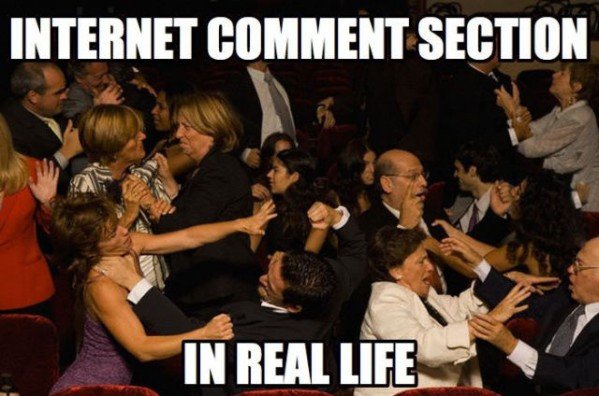You’ve just made the most beautiful, amazing, helpful stunning product that could help thousands and thousands of people to be more productive and happier, each and every day.
Good for you! But before you break out the champagne, remember that you’re probably competing with hundreds of other people who might say exactly the same thing.
How are you going to make your product stand out, and force reluctant buyers to part with their dough?
In the past, you might have been told to create a blog. Daily writing allows you to fill the Internet with words about the wonders of your product, and this might help you to rank a little higher in search results. If you really wanted to up your game, however, you’d utilize that little section that sits beneath your blog entries.
Yep, the comment section. By both encouraging Internet comments, and writing comments on other websites, you could beef up your profile and really take your business to the next level. But some recent changes in Internet protocol have made comments a little riskier, both for those who comment and for those who accept comments.
Here’s what’s going on.
Commenting Like a Pro
If you’re actively researching your market and checking out the competition, you’re likely reading dozens of articles and blog entries each and every day. Some of these articles might add little to nothing to your articles, but a few might get your wheels really turning. Some might even make you a little angry, as they miss points you consider key or distort facts you think everyone should know about.
You could deal with articles like this by posting a snarky comment on Facebook or Twitter, regaling your fans with your wit and acumen. Or, you could post a well-crafted rebuttal in the comments section that adds to the conversation and makes you look like an expert.
For example, a few weeks ago, mugshot websites got hit hard by a Google algorithm change that moved their pages down in search results. During my research, I stumbled across an article that stated (incorrectly) that the sites were “removed” from Google. By commenting, I refuted that statement. I also got the chance to plug my company’s blog in my comment
These sorts of comments tend to spark the interest of readers, and they’re tempted to click on your blog to see what else you might know about. It helps to boost your expert level, and drive those eyeballs to your site. And it’s free. Win win!
Words Can Hurt
Adding to the conversation can also be harmful, however, as refuting the facts or otherwise arguing with the author can bring the trolls out to play. Suddenly, the words you used can be turned against you, and if you don’t have the facts quite right or the sentiment seems somehow off, you could be dragged into a full-fledged flame war in the comments section.
In the past, this wasn’t such a big deal. If you wanted to make a comment without harming your cred, you could simply post anonymously. You’d drop a bomb and then just walk away. Now, more and more sites are getting rid of that option. Instead of allowing alias posting, sites are requiring users to sign in with LinkedIn, Google+ or Quora, and each little post is directly attached to that user’s name.
Flame wars attached to your name can move from the original blog or article into the web at large. Your Facebook page might contain hundreds of snarky comments, your Twitter feed might overflow with rebuttals and your email in-box could be filled with hate.
Ouch.
I’m all for standing up for the words you share. Everyone who writes should feel comfortable with the idea of standing up for the words used. But I also think everyone who comments should be mindful of the lack of anonymity the web requires these days. If your comments are always attached to your name, always ensure that:
- You’ve fully read the article in question, and all of the prior comments
- Your grammar is impeccable
- Your reasoning is sound
- Your post contains no personal attacks
Disagree all you’d like, but remember that words can harm you.
Harmful Hosting
While commenting on other sites could come back to bite you, if done improperly, your own site could harbor hidden dangers, if you don’t moderate your comments. Random users might log on to talk smack about your product, defeating all of your hard work with just a few keystrokes. Users might also attack one another, and in European courts, you’re held liable for the things other people say on your site.
Instituting a fully formed comments policy can help. Even a few sentences could do the trick, if you explain that you don’t allow comments that are somehow vulgar or attack-based. Then, troll those comments daily and remove each entry that doesn’t conform or adhere to your rules. It’s the best way to ensure that your blog contains lively, spirited comments that won’t get you in trouble with the authorities.
Words of the Wise
Comments are here to say, while anonymity is long gone. Writing comments and accepting comments could be the best way for you to generate a little free publicity, but it’s best to ensure that you’re working in a manner that’s both safe and smart. Otherwise, you’re putting both your reputation, and the success of your company, at risk.
Jean Dion is a Senior Journalist with InternetReputation.com. Jean holds a bachelor’s degree in English from Oregon State University, and lives in Salem, Oregon, with her husband, two dogs and (ugh) five cats. You can follow Jean on Google+
Image Credit: www.funnyjunk.com





